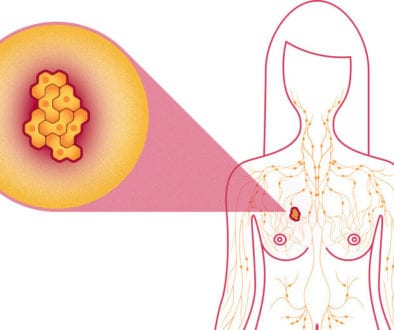Things to do if you are BRCA Positive
Preventive oncology is the need of the hour!!!
If you have heard about cancer occurrence in your family and your genetic testing such as Myriad MyRisk results show that you are BRCA positive then you are definitely at higher risk of getting breast and / or ovarian cancer than the general population. Listed below are few things to do if you are BRCA positive:
- Studies have found that women with BRCA1 mutations have up to a 65% risk of breast and with BRCA2 mutations have a 45% risk of breast cancer by age 70 in their entire lifespan.
- Apart from these males with positive BRCA gene mutations have increased the risk for pancreatic, prostate and male breast cancer in certain families.
- BRCA gene mutations show a dominant inheritance pattern, which means these mutations are inherited from parents to children. So there are 50 % odds of having a child with a BRCA positive gene with one affected parent.
- BRCA positive does not mean its end of the road. Individuals with mutated BRCA genes sometimes never develop cancer in their lifetime.
- The first important thing to do after you get the report is fixed an appointment with a genetic counselor. Genetic counselors can navigate you through the entire DNA reports, understand the health history of your family and provide all suitable options. With BRCA gene reports individual should utilize this information for better medical care and become proactive in cancer risk screening at a very early age.
Risk Management Strategies for BRCA positive individuals:
- Clinical breast examination twice a year is recommended for every woman with a positive BRCA mutation. Women in their 20’s with positive BRCA gene mutations should start their routine breast MRI by age of 25yrs, ahead of the general population.
- Similarly for women in ’30s annual breast mammogram is mandatory. For the risk of ovarian cancer oral contraceptives are advised in some cases, which do not compromise the fertility of women
- Based on cancer family history and personal genetic risk score a prophylactic bilateral mastectomy can be suggested by doctors.
- Also, in 30-40 yr of age for women, those who have planned family can consider the removal of ovaries and fallopian tubes (bilateral salpingo-oophorectomy) prior to menopause that can reduce the risk of both breast and ovarian cancer.
- Preventive medication such as tamoxifen, raloxifene etc. can be used for preventive therapy based on menopause status to reduce breast cancer risk by almost 50%.
- Positive BRCA1 gene mutation sometimes increased associated risk of colon cancer, so individuals with a family history of colon cancer should consult their doctors for appropriate timings to start routine screening or colonoscopy.
- The same is the case with pancreatic cancer history; although no specific screening is available timely symptom analysis is a must. For men, annual prostate checks up with a physician are advised after 40-45yr of age.
Get yourself updated with every NCCN guideline to never run out of information on the cancer screening guidelines.
Guilt and denial may come as extra baggage with BRCA positive news but support from a genetic counselor and family member can get you out of that fear. And off course moving on to a healthy lifestyle is never out of fashion and has a positive impact on your body as well as mind. You will be more
confident and ready to face cancer challenges in life.
Reference:
https://www.breastcancer.org/symptoms/testing/genetic/pos_results
– By Ruchi Talati




